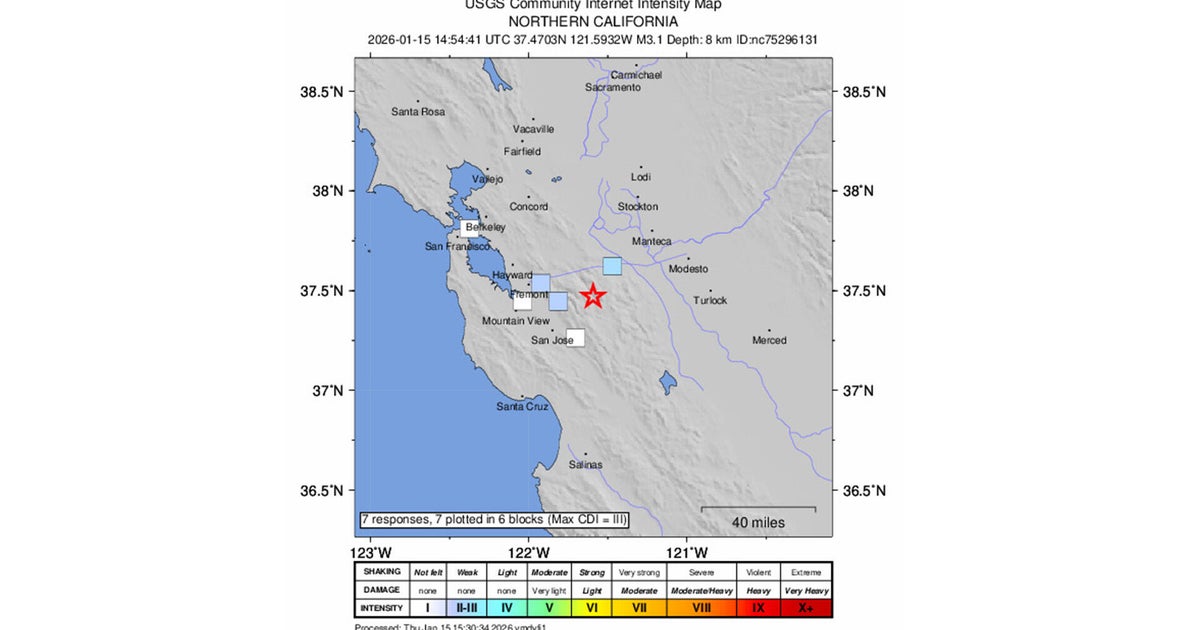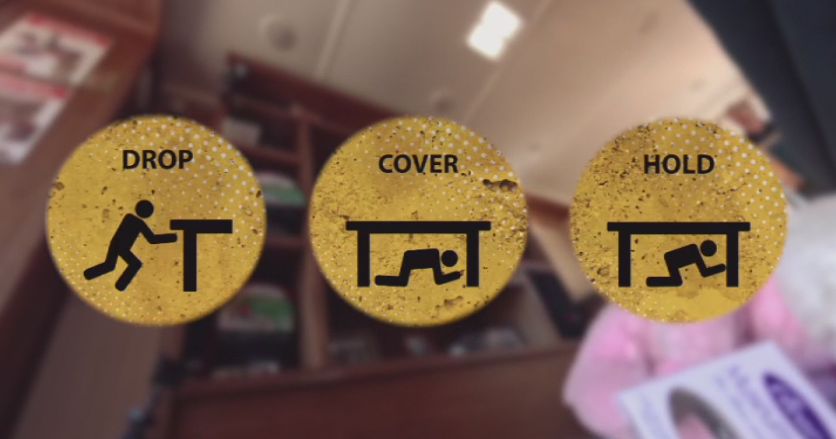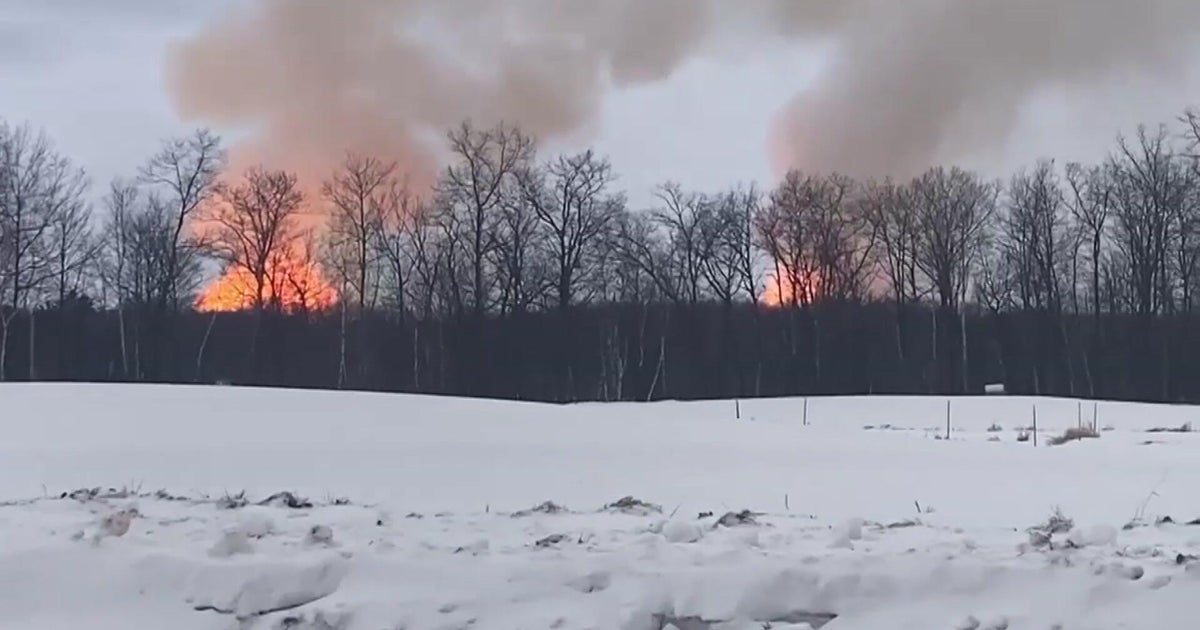Residents near epicenter of Rockville, Maryland, earthquake describe shaky ground
BALTIMORE -- Did you feel the ground shake?
A small-magnitude earthquake shook the Washington, D.C. suburb of Rockville, Maryland, early Tuesday, the U.S. Geological Survey said.
A 2.3 magnitude earthquake happened shortly before 1 a.m. at a depth of about 9.5 miles about 2 miles west of Rockville.
No damage or injuries have been reported, but nearly 2,000 people, from six states and Washington, D.C., reported feeling the earthquake to the USGS, including people in Baltimore, and as far away as Pennsylvania and West Virginia.
Rockville resident Audrey Jan told WJZ she felt the ground move early in the morning.
"It was just a little shake, not much," Jan said. "Just make you think, maybe I had a little too much to drink or something."
Montgomery County Fire and Rescue officials report several calls to 911.
"What most people describe is they heard it," Montgomery County Fire and Rescue spokesperson Pete Piringer said. "Some describe it as a truck driving down the street, of course, this was about 1 o'clock in the morning."
EMT Erich Mayne was in an ambulance at the time of the earthquake.
"I was talking to my friend about the earthquake in Japan, and before we knew it, it was crazy timing," Mayne said. "We felt the earth shake while we were talking."
USGS research geophysicist Thomas Pratt says it's unlikely the earthquake will lead to something larger, but it's possible.
"It's a relatively small earthquake, but anything about 1.5 or so, there's a chance people will feel it," Pratt said. "It's not uncommon for earthquakes like this to come in clusters."
The USGS website shows the epicenter of the earthquake was in Rockville.
"This is Glen Mill, we're right here," Jan said. "Yeah, it's just right across the road."
Officials say these quakes are great examples of why it's important to have an emergency plan in place, in case a bigger one were to hit, like the 5.8 magnitude earthquake in Virginia in 2011.
"The Eastern U.S. transmits energy a lot more efficiently than the Western U.S. because it's older and harder rocks in the east."







